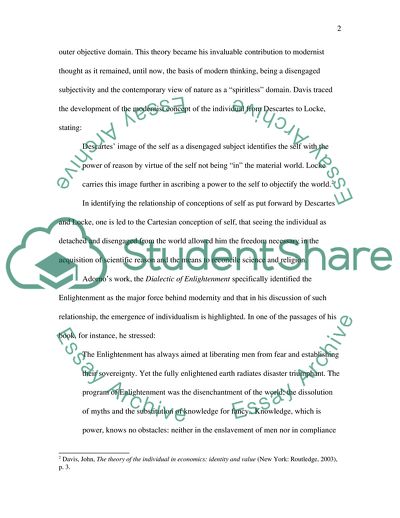Cite this document
(Re-Evaluation of the Self as a Principle of Modernist Thought Essay, n.d.)
Re-Evaluation of the Self as a Principle of Modernist Thought Essay. https://studentshare.org/philosophy/1732228-there-will-be-time-to-prepare-a-face-to-meet-the-faces-that-you-meet-ts-eliot
Re-Evaluation of the Self as a Principle of Modernist Thought Essay. https://studentshare.org/philosophy/1732228-there-will-be-time-to-prepare-a-face-to-meet-the-faces-that-you-meet-ts-eliot
(Re-Evaluation of the Self As a Principle of Modernist Thought Essay)
Re-Evaluation of the Self As a Principle of Modernist Thought Essay. https://studentshare.org/philosophy/1732228-there-will-be-time-to-prepare-a-face-to-meet-the-faces-that-you-meet-ts-eliot.
Re-Evaluation of the Self As a Principle of Modernist Thought Essay. https://studentshare.org/philosophy/1732228-there-will-be-time-to-prepare-a-face-to-meet-the-faces-that-you-meet-ts-eliot.
“Re-Evaluation of the Self As a Principle of Modernist Thought Essay”. https://studentshare.org/philosophy/1732228-there-will-be-time-to-prepare-a-face-to-meet-the-faces-that-you-meet-ts-eliot.


